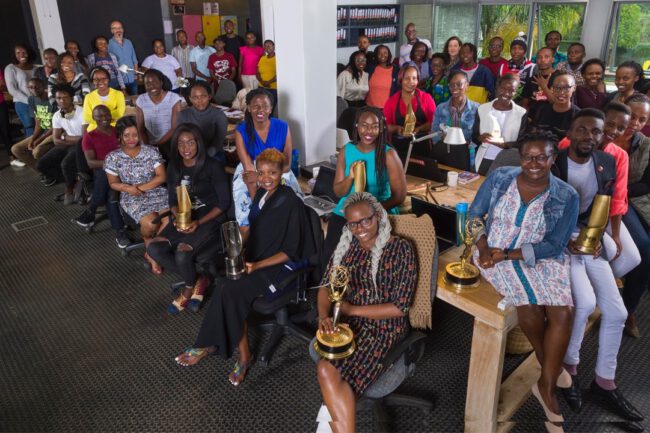Acumen
Acumen is committed to catalyzing long-term impact for the poor. Our patient capital invests where commercial investors are unwilling to – in companies working on hard-to-solve problems in hard-to-reach areas; through those investments, we reimagine employment opportunities for women and youth. With a track record spanning more than two decades of investing to drive social outcomes for low-income and marginalised communities, Acumen is well-positioned to invest in the creation of dignified, decent jobs for African youth.
Investing in Decent Work for Youth
In many countries throughout Africa, the number of people living in poverty has increased, with the rising unemployment rates undermining poverty reduction efforts. The lack of job opportunities is not only at the core of high poverty levels and growing inequality but also social unrest across the regions of East and West Africa.
As the impact investing sector evolved, capital has mostly been allocated to a narrow subset of social problems. For example, in 2021, 41% of impact assets in emerging markets were allocated to financial services, and over half of all venture capital funding in Africa was allocated to FinTech. These statistics indicate two problems: first, while financial inclusion is a significant problem, it is not the only problem low-income communities face. Second, as with many tech-based models, the job creation potential for these companies is often in the low 100s. Furthermore, the tech sector creates jobs that are concentrated in urban centers, while funding for brick-and-mortar companies in more remote regions remains scarce.
In this context, there is a unique role for Acumen to fill the gap and help create sustainable livelihoods for some of the most vulnerable populations across East and West Africa, particularly youth and women. We will achieve this by identifying impactful businesses that serve low-income communities and creating a roadmap for companies to reduce the barriers to employment for women and youth.
Our Impact
Inclusive Work Initiative
Acumen’s approach to addressing youth employment in Africa is to invest equity and other innovative financing instruments into companies creating quality, sustaining jobs for low-income individuals, often in hard-to-reach, last mile areas. With support from CFYE’s SEM thematic call, in 2022 Acumen launched a €15M Inclusive Work Initiative (IWI). The IWI is identifying and investing in inclusive companies across Kenya, Ethiopia, Nigeria, and Uganda through initial investments of USD 200-$500K. The IWI expects to drive job creation and improvement across four sectors: Energy, Agriculture, Education, and Work Platforms. Through this Initiative, Acumen aims to create 5,400 jobs and improve 9,700 jobs between 2022-2025. It expects 40% of these jobs to be in green or digital sectors, and 50% for women. Many of these jobs will be primarily in rural communities.
Acumen will deploy new and follow-on investments, and provide technical assistance to companies throughout the investment cycle to ensure sustainable growth and development.
Furthermore, Acumen has observed that poverty is not gender neutral and it disproportionately impacts women and girls. Across all sectors, women experience shared barriers. They are often unable to move around freely in their communities due to their commitments within the home, are likely to have left school at an earlier age than their male counterparts, have smaller professional networks, have less access to and literacy of digital services, and lower access to finance for entrepreneurial ventures. . As investors, Acumen knows how it invests, how its portfolio companies behave, and the strategies they use to grow their business can all impact gender outcomes, both positively and negatively. Under IWI, Acumen will support companies to adopt gender-sensitive business models that increase opportunities for and improve the experience of women employees and women in their supply chains.
Young people need fair opportunities to meaningfully participate in the labour market and thus in life. For this meaningful participation, private-public partnerships become essential. Still, private entities have an especially catalytic role in paving the way for a more inclusive and youth-centered work landscape.

